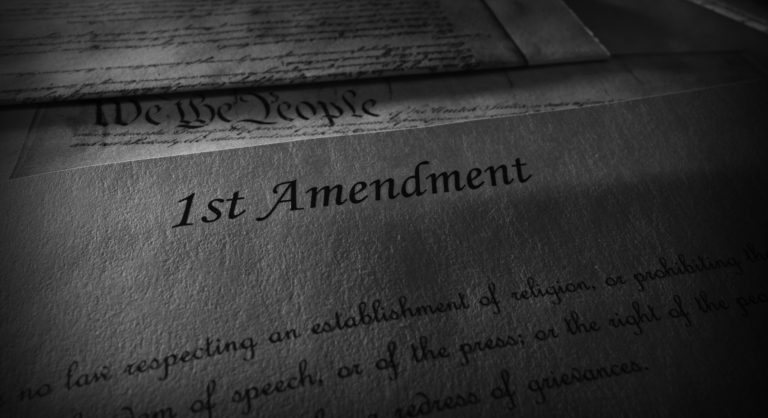Client Alert: Federal Court Partially Blocks Florida from Enforcing ‘Stop WOKE Act’ – What This Means for Employers
On August 18, 2022, the U.S. District Court for the Northern District of Florida partially enjoined Florida’s Individual Freedom Act (“IFA”), also known as the Stop Wrongs to Our Kids and Employees (WOKE) Act. The law, which went into effect on July 1, 2022, prohibited, among other things, employers from requiring training, or any other mandatory activity, that endorses certain race and sex-based concepts. In the matter of Honeyfund.com Inc. v. Ron DeSantis, et al., No. 4:22-cv-00227 (N.D. Fla. Aug. 18, 2022), the court granted the plaintiffs’ motion for a preliminary injunction finding that there was a substantial likelihood of success on the merits to their claim that the IFA violates the First Amendment. The court held that the IFA violates the First Amendment because it is not sufficiently narrowly tailored, constitutes a viewpoint-based regulation on free speech, and is impermissibly vague.
Background
The IFA, among things, amends the Florida Civil Rights Act (“FCRA”) by expanding the definition of unlawful employment practice to include requiring employees to attend a training, or any other “required activity,” that promotes any part of eight broadly worded “concepts.” Specifically, the prohibited “concepts” under the IFA are as follows:
- Members of one race, color, sex, or national origin are morally superior to members of another race, color, sex, or national origin.
- An individual, by virtue of his or her race, color, sex, or national origin, is inherently racist, sexist, or oppressive, whether consciously or unconsciously.
- An individual’s moral character or status as either privileged or oppressed is necessarily determined by his or her race, color, sex, or national origin.
- Members of one race, color, sex, or national origin cannot and should not attempt to treat others without respect to race, color, sex, or national origin.
- An individual, by virtue of his or her race, color, sex, or national origin, bears responsibility for or should be discriminated against or receive adverse treatment because of actions committed in the past by other members of the same race, color, sex, or national origin.
- An individual, by virtue of his or her race, color, sex, or national origin, should be discriminated against or receive adverse treatment to achieve diversity, equity, or inclusion.
- An individual, by virtue of his or her race, color, sex, or national origin, bears personal responsibility for and must feel guilt, anguish, or other forms of psychological distress because of actions, in which the individual played no part, committed in the past by other members of the same race, color, sex, or national origin.
- Such virtues as merit, excellence, hard work, fairness, neutrality, objectivity, and racial colorblindness are racist or sexist, or were created by members of particular race, color, sex, or national origin to oppress members of another race, color, sex, or national origin.
The IFA provides, however, that the foregoing “concepts” may be discussed as part of a training or instruction provided that “such training or instruction is given in an objective manner without endorsement of the concepts.” Fla. Stat. § 760.10(8).
The Court’s Decision
The plaintiffs in Honeyfund.com, two employers and an employment consultant, filed suit seeking to enjoin enforcement of the IFA and requesting a declaration that the IFA is unconstitutional. The first plaintiff is a Ben & Jerry’s franchise operator in Florida alleging that it had altered plans to provide diversity, equity and inclusion trainings that used terms such “dominant group,” “racial bias,” “white man’s privilege,” and “white man’s guilt,” and that it intended to address topics like systemic racism. The second plaintiff is an employer alleging it intended to provide training on advancing women in business, anti-harassment, and institutional racism. The third plaintiff is a diversity, equity and inclusion consultant who alleges that she lost business as a result of the IFA.
The plaintiffs argued that the IFA violates the First Amendment and is unconstitutional because it places a presumptively unconstitutional viewpoint-based restriction on speech. In other words, the plaintiffs argued that the IFA is unconstitutional because it targeted their speech because of its message. The court agreed and held that the IFA violates the First Amendment.
The court disagreed with the defendants’ argument that the IFA restricts only conduct, and not speech. The defendants argued that the IFA merely regulated the conduct of making attendance mandatory at training events or sessions that are covered by the IFA. The court rejected this position and found that the IFA barred more than attendance at meetings – it barred “any . . . required activity” that discusses or endorses the eight forbidden “concepts.” The court concluded that limitation would include trainings, phone calls, assignments, and even workplace discussions touching on the prohibited “concepts.” The IFA also does not ban all mandatory meetings – it bans only those meetings endorsing the covered “concepts,” but it does not ban meetings opposing them. Under the IFA, an employer would be prohibited from holding a training endorsing systemic racism, but it would not be prohibited from holding a meeting condemning the same topic. As a result, the court found that the IFA clearly regulates speech and not merely conduct.
The court also found that the IFA is not narrowly tailored and therefore fails to pass a strict-scrutiny analysis. Defendants argued that the State of Florida had a compelling interest in curtailing speech that the State found to be repugnant to a “captive audience of employees.” The court rejected this argument and held that “the First Amendment does not give the state license to censor speech because it finds it to be ‘repugnant,’ no matter how captive the audience.” Further, the court held that the IFA is not narrowly tailored to serve a compelling government interest because the FCRA already prohibits much of what the IFA aims to prohibit.
The court entered an injunction enjoining the State’s enforcement of the IFA pending resolution of the underlying lawsuit. A request to stay the court’s order pending appeal was denied. An appeal to the Eleventh Circuit Court of Appeals is anticipated.
The Decision’s Significance for Employers
For New England employers with operations in Florida, the Honeyfund.com decision has immediate practical significance. Until the preliminary injunction is addressed by the Eleventh Circuit Court of Appeals, the Florida Attorney General is prohibited from enforcing the terms of the IFA against employers. Accordingly, for the time being, employers’ training and diversity and inclusion initiatives are subject to less scrutiny by the State of Florida because the Attorney General cannot enforce the terms of the IFA. Importantly, however, the IFA does still pose some risk for employers with Florida operations. The Honeyfund.com decision only enjoined enforcement by the State. The decision does not bar individuals, such as an allegedly aggrieved employee, from pursuing a private right of action under the FCRA.
The decision also has broader significance because it will be watched closely by other jurisdictions as it proceeds through the federal court system. If the decision is upheld, it will almost certainly have a chilling effect on other states’ efforts to enact similar laws, or even the Florida Legislature’s efforts to enact similar laws or modify the IFA.
Categorized: Client Alerts, Publications
Tagged In: WOKE Act, Stop Wrongs to Our Kids and Employees Act, diversity and inclusion training, first amendment



